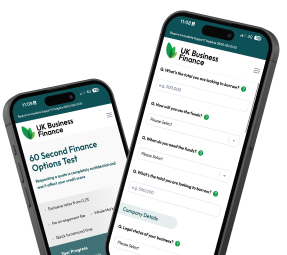
Does my personal credit score matter when applying for credit for my business?

Financial institutions base their lending decisions on the level of risk posed by a borrower. In reaching a decision, various factors are taken into account, including the industry in which you operate, your history of repayment, and the information held in your business credit file.
Although this information is fairly comprehensive, the lender may decide to protect themselves further by looking at your personal credit record. If the bank has concerns, they may ask you to provide a personal guarantee to secure the borrowing, or else they may refuse to lend you the money at all.
What details are included in a credit file, and what is the source of this information?
Your business credit record contains information on the company’s directors, and how ownership of the business is divided. If the company has borrowed in the past, it will also show payment defaults and County Court Judgments (CCJs) against the company, as held by the Registry Trust.
A lender will be able to see other lines of credit taken out by the business, and the total amount of credit available. Companies House also provides information to the credit reference agencies on your company accounts.
Other ways in which information is gathered
Some agencies gather information via questionnaires, or by calling businesses directly. This supplements the official data obtained from Companies House and the Registry Trust.
If you feel there are insufficient facts and figures in your company’s credit file – if you are a start-up business, for example – you can potentially boost your credit rating a little by providing the credit reference agencies with generic information, such as the number of people you employ, or your line of business.
Solutions Based Funding Options
- UK's Leading Business Funders
- Free Brokerage Service
- Full Market Access
Building up a good business credit rating
It can be particularly difficult for new companies to obtain borrowing, as there is no history of repayment that a lender can use as a basis for its decision. One answer to this problem, and also for more established businesses that have not borrowed before, is to start a line of credit that can be easily repaid each month.
This might be an ongoing order for office supplies, for example, but essentially it must be a regular, affordable payment that will not be missed. But even if you improve your business credit score, can your personal credit rating let you down in relation to company borrowing?
Scoring system to establish creditworthiness
It is possible that a poor personal credit history could affect your company’s ability to borrow money. The way in which you conduct your personal financial affairs is not necessarily a reliable reflection of how you would deal with company finances, but if a lender sees no information of value in your business credit file, they may turn to your personal credit history to guide their decision.
Some financial institutions use specific software that incorporates both business and personal credit records when scoring an application for borrowing. This provides them with an integrated set of information that allows them to more accurately estimate their risk.
Credit checks for business borrowing
There are two types of credit check for both business and personal borrowing – a hard enquiry and a soft enquiry. A soft enquiry can be carried out by a third party without your permission, and does not affect your credit score.
A hard enquiry must be authorised - usually via an official application for borrowing or credit. If a hard enquiry takes place, and the borrowing is subsequently refused, this can negatively affect your credit score.
BTG Begbies Traynor is the UK’s leading professional services consultancy. If you need advice on how your personal credit score might affect your company’s ability to borrow, call our expert team to arrange a free initial consultation. We operate from over 100 offices nationwide, and offer a same-day meeting with one of our licensed insolvency practitioners.
More BTG Begbies Traynor Articles
Contact the team
Key Contact

You're in Safe Hands
- 35+ Years Experience
- 100+ UK Offices
- Confidential director support
- Insolvency market leader
Article Archive
Article Categories



